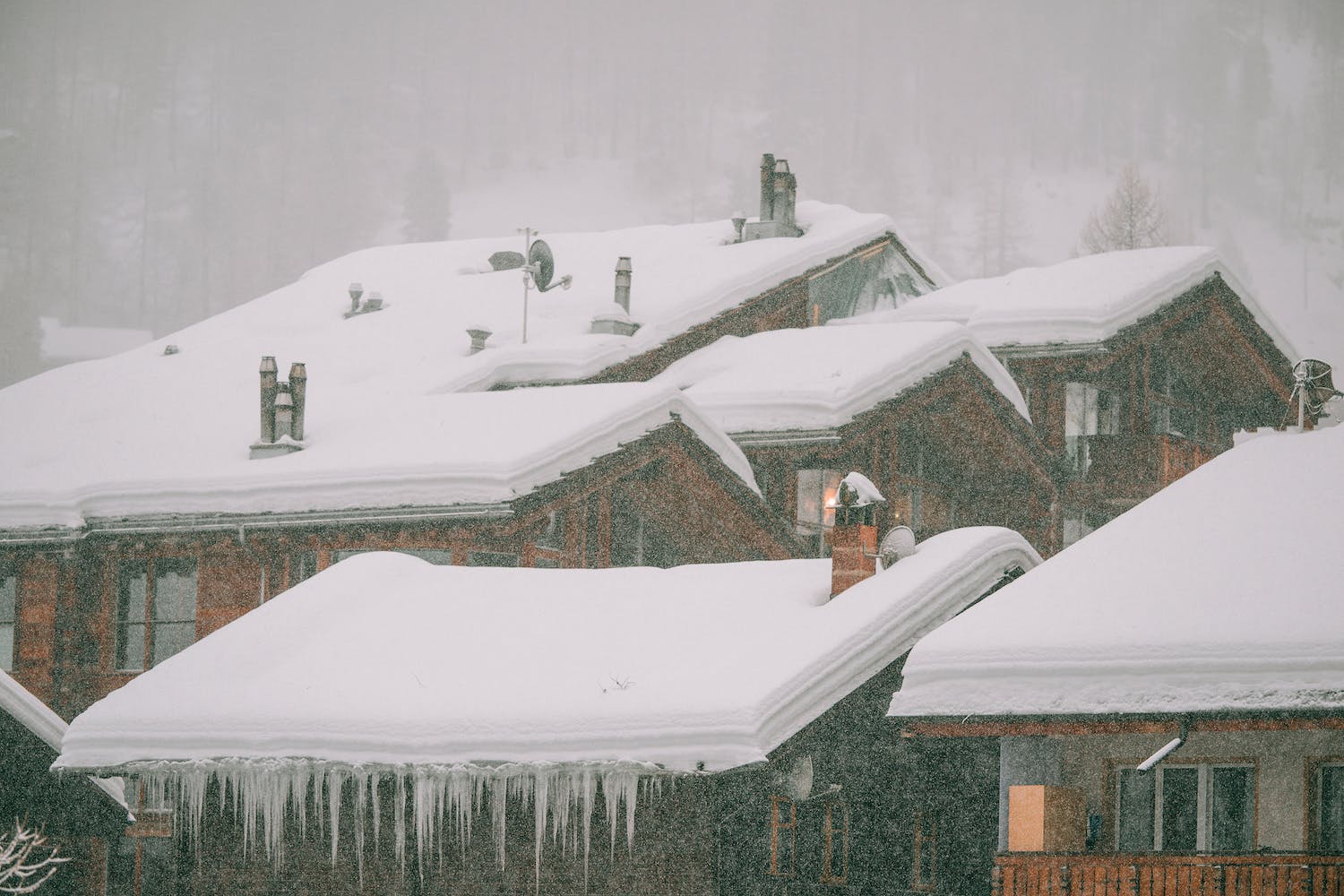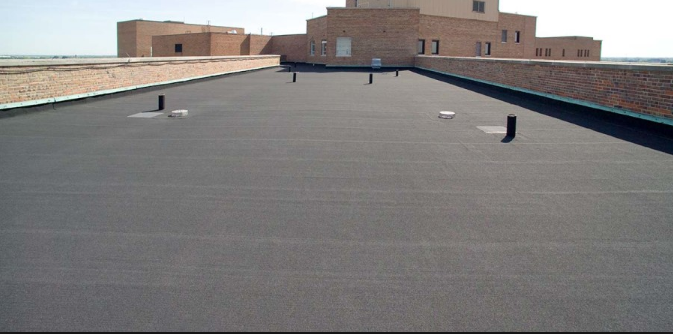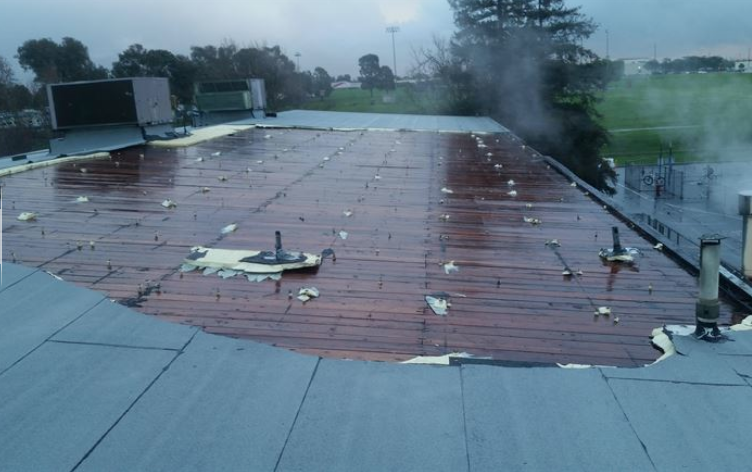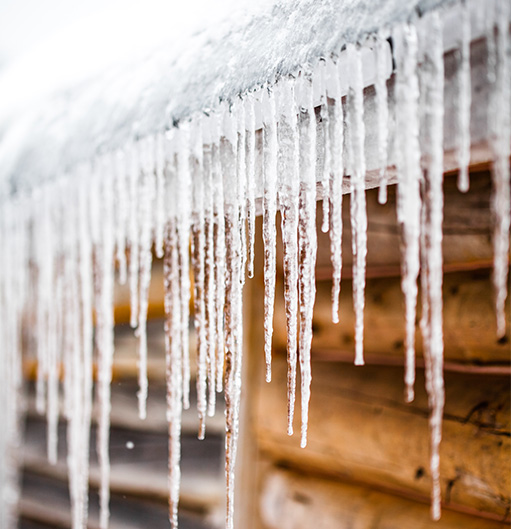How To Avoid Ice Damming On Your Roof
When it comes to homes in Chicago, roofing on those houses may need a little more attention than in other cities with more mild weather. With our harsh and icy winters, it is not uncommon for some roofs to acquire problems that require a certain amount of maintenance. One of these problems is ice damming. This is a problem that many people don’t notice until it is too late and damage to their home has already been done.
What is Ice Damming?
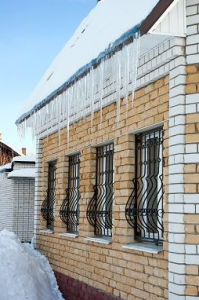 Ice damming occurs when your roof heats up and begins melting the snow and ice that has accumulated. That melting snow moves down the roof toward the edge of the roofline. The problem happens when the melted snow meets the cold roofline. The liquid then turns back to ice, creating the ice dam. As more snow melts and moves down the roof, the ice dam gets bigger and bigger, creating standing water that rests on the roof. As time goes by, this standing water seeps through the shingles and begins to cause damage to the roof and potential water damage to the rest of your home as well.
Ice damming occurs when your roof heats up and begins melting the snow and ice that has accumulated. That melting snow moves down the roof toward the edge of the roofline. The problem happens when the melted snow meets the cold roofline. The liquid then turns back to ice, creating the ice dam. As more snow melts and moves down the roof, the ice dam gets bigger and bigger, creating standing water that rests on the roof. As time goes by, this standing water seeps through the shingles and begins to cause damage to the roof and potential water damage to the rest of your home as well.
How Can You Prevent Ice Damming?
The easiest way to not get ice dams is to act before an ice dam has the chance to form. These simple measures can assist you in preventing ice dams from forming and damaging your home.
Add Ventilation
A great way to prevent ice dams is to make sure you keep your roof cool enough that the snow won’t have a chance to melt. Take a fan to the attic and blow around cold air. This will keep the roof temperature similar to the shingles so no snow melts. You could also create vents in the soffits of your roof, allowing the cold air from outside to keep the underside of your roof cool as well.
Increase Insulation
Another easy way to prevent ice dams on your Chicago roofing is to put more insulation in the attic of your home. This will help keep the heat from your home away from the roof. It can also help to keep your heating bill down by not letting as much of your heat escape through your roof.
Seal Any Openings
You also want to make sure that any openings from your home that lead to the roof are sealed. Be sure the flashing around your chimney and vents is secure and not letting any warm air escape to the roof. This will keep the warm air out and the cool air surrounding the roof like it should be.
Ways to Recognize A Potential Ice Dam
Ice dams are not always easy to spot. However, there are a few tell-tale signs you can keep your eye out for that will let you know if ice dams are a concern.
Snow Accumulation
If there looks to be a large amount of snow and ice resting on the edges of your roof while the main section of the roof seems dry, that could be a sign that an ice dam has formed.
Icicles
Many homes get icicles during the wintertime that hang from the roof. But if you remove the icicle and water begins to run off the roof where the icicle was, there could potentially be an ice dam that has formed.
What To Do If An Ice Dam Forms
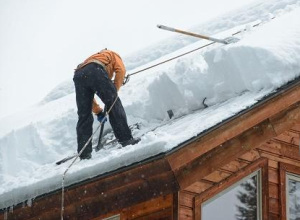 Chicago roofing in winter can be very dangerous to try to manage if you are not properly trained. If you cannot safely reach your roof to remove snow or icicles, please contact a professional who can help you. While ice dams are issues that should be taken care of quickly, they are not worth harming yourself to save the few extra minutes it takes to call a roofer for assistance.
Chicago roofing in winter can be very dangerous to try to manage if you are not properly trained. If you cannot safely reach your roof to remove snow or icicles, please contact a professional who can help you. While ice dams are issues that should be taken care of quickly, they are not worth harming yourself to save the few extra minutes it takes to call a roofer for assistance.
Remove the Snow
If possible, try to remove the snow on the roofline of your home. To maintain the integrity of your roof, only use a roof rake to get rid of the ice and snow. These items will help to minimize further damage to your roof.
Clean Off Downspouts
Check to make sure your downspouts are clear. If you can, remove an built up snow or ice from the downspout so the melting snow and ice on your roof will have a place to be funneled to and be lead off the roof.
Take some of this advice and protect yourself, your home, and your family from any damage that may be caused as a result of ice damming on the roof of your Chicago home.
.png)
